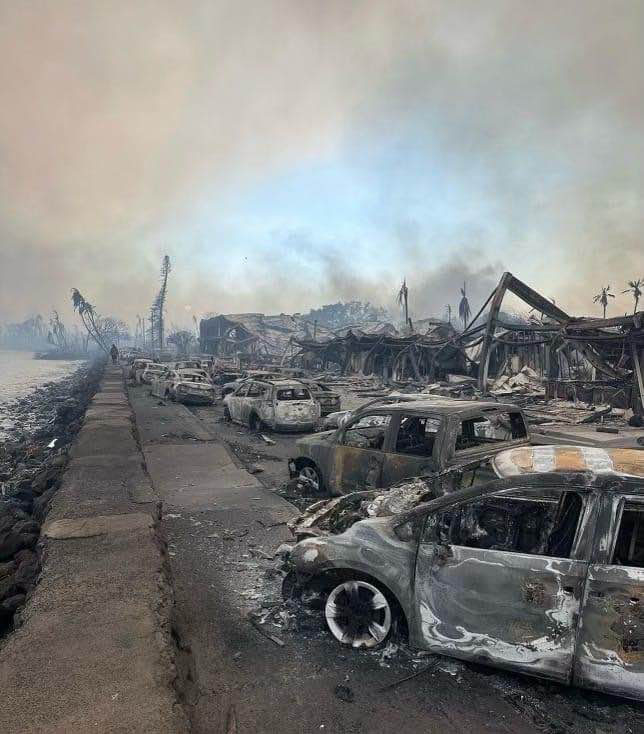Yesterday, Hawaii Governor Josh Green spoke sternly against unsolicited offers to buy land in the aftermath of the devastating wildfires Maui suffered in August.
According to Fortune magazine, Green announced investigations into several people alleged to have made offers to buy land from individuals in the impacted communities and profit when real estate prices recover.
Speaking at a press conference, Gov. Green stated that “My intention from start to finish is to make sure that no one is victimized from land grab.”
CNN reported that he spoke directly to those who contemplating trying to capitalize on the crisis, stating “Don’t make the mistake of testing us in that space, please.”
“People are right now traumatized. Please do not approach them with an offer to buy their land. Do not approach their families saying they’ll be much better off if they make a deal. Because we are not going to allow it.”
On August 19th, Green placed a moratorium on unsolicited sale of land in the fire-struck historic town of Lahaina, where concern over a “land grab” is especially high, according to CBS News.
He said he preferred a full moratorium on land sales, but didn’t want to prevent owners from initiating sales themselves—and a full ban could be ruled to violate property rights by the courts.
According to Native News Online, an Indigenous American media outlet, the loss of land is especially concerning for Native Hawaiians, who are reportedly raising fears that not only will families be displaced, their culture will be lost in Lahaina.
Kapua‘ala Sproat, Director of the Ka Huli Ao Center for Excellence in Native Hawaiian Law at the University of Hawai’i told Native News Online that “Unfortunately, what happened with the wildfires directly related to our history of colonialism in Hawai‘i.”
“Plantation interest came in, reverted streams, drilled wells to take ground water resources and essentially sucked the life out of what was an incredibly vibrant community.”
Quoted in CNN Business, Native Hawaiian organizer Kaniela Ing said that “Fear of predatory land grabbers coming in is legitimate because it’s already happening, it’s been happening for generations now.”
Before the fires, Lahaina was gentrifying and its economy was primarily driven by tourism. Sterling Higa, a Maui resident and executive director of Housing Hawaii’s Future considers this another part of the land grab.
“Before the fire in Lahaina, the same process had continued to unfold in west Maui, where Native Hawaiians, local families, were being priced out of their homes as wealthier people from out-of-state bought second or third homes, investment properties or homes that they could retire into.”
Continuing, she told CNN Business that “prices of housing in west Maui has vastly outstripped the wages that are paid in Maui, especially for people working in the hospitality industry.”
The Honolulu Star-Advertiser reported on a group of Native Hawaiians and Maui residents, Na Ohana o Lele: Lahaina, who worry the governor is moving too quickly to rebuild what has been lost, without time to grieve or consider who will control a rebuilt Lahaina.
“The governor should not rush to rebuild the community without first giving people time to heal, especially without including the community itself in the planning,” organizer Tiare Lawrence said. “Fast-track development cannot come at the cost of community control.”
AsAmNews is published by the non-profit, Asian American Media Inc.
We are supported through donations and such charitable organizations as the Robert Wood Johnson Foundation. A big thank you to all our readers who supported our year-end giving campaign. You helped us not only reach our goal, you busted through it. Donations to Asian American Media Inc and AsAmNews are tax-deductible. It’s never too late to give.
Please also follow us on Instagram, TikTok, Facebook, YouTube and X.

